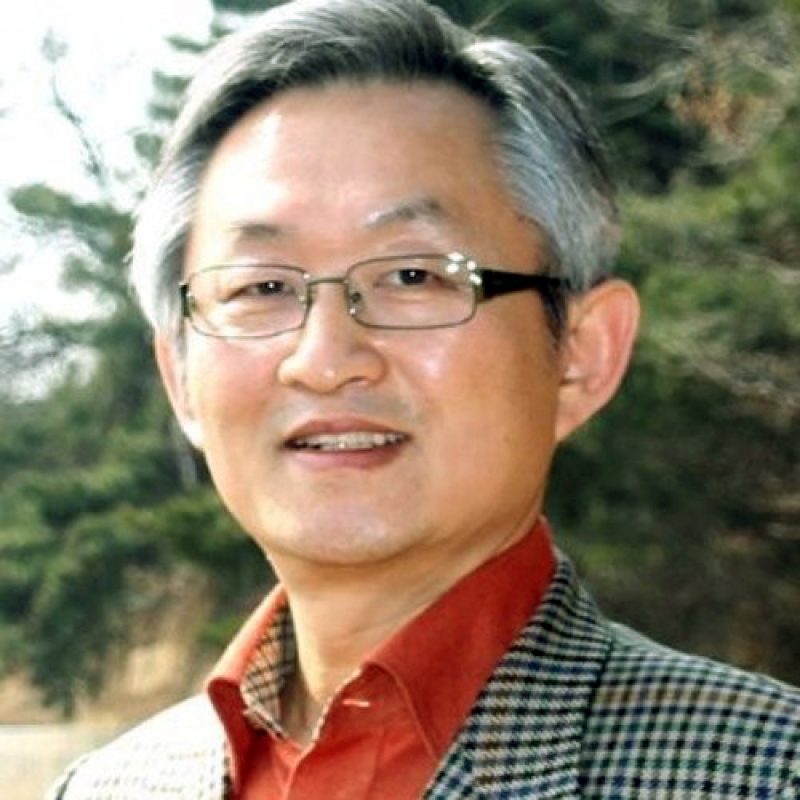
How did the early missionaries to Korea understand "pneumatology'? The Korea Mission Field was a fundamental resource that helped to answer that question. PyongYang DaeBuHungUnDong (Pyongyang Great Revival) written by YongGyu Park, the professor of ChongShin University, also gives perspective and a rough portrayal of the contemporary Spiritual movement on the basis of related resources. In particular, the appendix of this book has a useful chronological table which is related to the presence and power of the Holy Spirit before and after Pyongyang Great Revival. And MyengSu Park, the professor of Seoul Theological Seminary, illuminated the fact that the character of the early Korean Revival was fundamentally a part of the numerous late nineteenth and early twentieth century holiness movements which stressed the purity of heart and the power of Holy Spirit.
The nineteenth century Spiritual movements in North America and England had a direct effect on the early Korean revivals through the missionaries who came to Korea. The missionaries had a tendency to make a distinction between regeneration and Spirit Baptism in their writings before the Revival took place, regardless of whether they were Presbyterian or Methodist, which was the major tradition of the nineteenth century Spiritual movement.
Such a distinction of Spirit Baptism was also natural to Horace G. Underwood and Henry G. Appenzeller, who were the first missionaries to Korea. Underwood was a Presbyterian yet in his seminary years he experienced the fullness of the Holy Spirit at Salvation Army. Appenzeller, who was also a Presbyterian, later experienced the Holy Spirit as well at a cell group at a Methodist Church, and became a Methodist. In 1890, he wrote, "There need to be the definite baptism of remission of sin and the strong power of repentance. I want to see that the Korean church members are astonished at awakening of their sin."(Appenzeller's letter, July 4, 1890)
In his letter in 1894, Samuel A. Moffett, a Northern Presbyterian missionary to Korea, wrote, "Those were the happy days to both me and the teacher to see many people came to the church of Christ. We are certain that there will be a harvest of souls among our first fruits when they are baptized with the Holy Spirit."(Samuel A. Moffett's letter to Ellinwood in January 12th, 1894) Most of the early missionaries to Korea thus had tendency to differentiate Spirit Baptism from regeneration, for they were much affected with the late nineteenth century Wesleyan Holiness Movement or Reformed Spiritual Movement. Both movements all regarded Spirit Baptism as the second grace of indwelling Holy Spirit.
The late nineteenth century American Reformed spiritual movement generally followed the holiness conception which was based on the counteraction theory or Suppression of sinful tendencies. Meanwhile, it also rejected the Eradication on sinfulness which was held by Wesleyan Holiness Movement. The more recent Reformed Spiritual Movement explained that the continuous victory from sin came from living empowered by the Holy Spirit, and emphasized the Spirit Baptism as the Union with Christ and Power for Service. The representatives of this line of thought were Evan Hopkins, Handley C. G. Moule, Asa Mahan, Charles Finney, Dwight L. Moody, Reuben A. Torrey, Adoniram J. Gordon and A. B. Simpson.
And it can be confirmed that the Pyongyang Great Revival took a serious view of the experience of Spirit Baptism or being filled with the Holy Spirit, which was definitely a different experience from regeneration. When he saw the Pentecostal experience of the Pyongyang Great Revival, Underwood wrote, "Korean Church received Baptism with the Holy Spirit" (Horace Grant Underwood, The Call of Korea, 6). And when E. F. Hall sent a letter to Arthur Brown, he wrote that SeinJu Kil received the Spirit Baptism during the Pyongyang Great Revival (E. F. Hall, Letter to Dr. Brown, Mar., 21, 1907). And most of the early missionaries to Korea such as William Newton Blair, J. F. Preston also worked on the basis of understanding that the experience of Spirit Baptism or Spirit Outpouring is different from that of regeneration.
As mentioned above, most of the early missionaries to Korea who witnessed the Pyongyang Great Revival stood firm in the tradition of the late nineteenth century Wesleyan and Reformed spiritual movements. Accordingly, the conclusion is that the tendency to differentiate Spirit Baptism from regeneration was quite natural during the early revival period regardless of whether the missionaries were Presbyterian or Methodist. Since then, it has become tradition in "Korean style" revival meetings to emphasize that regenerated people should repent and ask the Lord to be baptized with the Holy Spirit.
Now is the time for the heirs of the Pyongyang Great Revival to ask for the power of Spirit Baptism, just as the predecessors did one hundred years ago. The power begins with purity of heart first and then is accompanied by spiritual fruit and His gifts. And more than anything, we believe the core of such experiences is Christ's reign in a believer's life. I humbly pray that God will have mercy on the Korean peninsula; that God will allow the Korean Church, with all churches in the world, receive Spirit Baptism again and help the Church to live in His power. We are convinced God will make the Holy Spirit manifest His power through the churches powerfully so that He heals this land, and that that healing will culminate into the accomplishment of world evangelization.

Rev. Dr. Bonjour Bay (BonChul Bae) has been a professor of Historical Theology at SungKyul University, Korea since 1989. He also serves as Researcher on Spiritual Movement and as English Ministry Director. He studied at Canadian Thelogical Seminary (M. Div.) and Seoul Theological University (Th. M., Ph. D.). He wrote more than 20 books on Church History and on Pneumatology including History of Pneumatological Perspective.



















